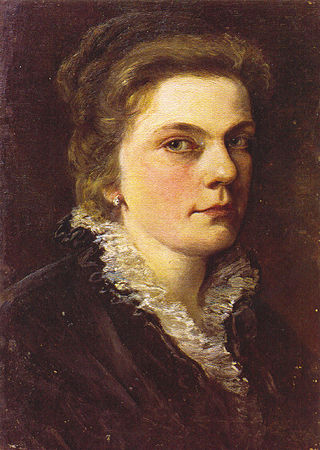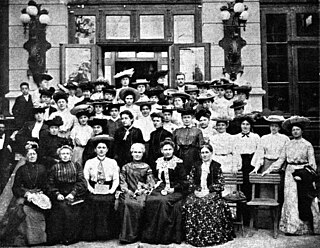
The Austrian National Library is the largest library in Austria, with more than 12 million items in its various collections. The library is located in the Neue Burg Wing of the Hofburg in center of Vienna. Since 2005, some of the collections have been relocated within the Baroque structure of the Palais Mollard-Clary. Founded by the Habsburgs, the library was originally called the Imperial Court Library ; the change to the current name occurred in 1920, following the end of the Habsburg Monarchy and the proclamation of the Austrian Republic. The library complex includes four museums, as well as multiple special collections and archives.

The German National Library is the central archival library and national bibliographic centre for the Federal Republic of Germany. It is one of the largest libraries in the world. Its task is to collect, permanently archive, comprehensively document and record bibliographically all German and German-language publications since 1913, foreign publications about Germany, translations of German works, and the works of German-speaking emigrants published abroad between 1933 and 1945, and to make them available to the public. The DNB is also responsible for the Deutsche Nationalbibliografie and several special collections like the Deutsches Exilarchiv 1933–1945, Anne-Frank-Shoah-Bibliothek and the Deutsches Buch- und Schriftmuseum. The German National Library maintains co-operative external relations on a national and international level. For example, it is the leading partner in developing and maintaining bibliographic rules and standards in Germany and plays a significant role in the development of international library standards. The cooperation with publishers has been regulated by law since 1935 for the Deutsche Bücherei Leipzig and since 1969 for the Deutsche Bibliothek Frankfurt am Main.

Wolfgang Laz, better known by his Latinized name Wolfgang Lazius, was an Austrian humanist who worked as a cartographer, historian, and physician.

The legal position of women in Austria improved since the middle of the 1970s. With regard to women's rights, the priority in Austria is based on the equal treatment of both genders, rather than having equal rights only. Thus, Austrian women benefit from their government's attempt to compensate for gender-specific inequality of burdens. However, the concept of traditional roles, influenced by Roman Catholicism in Austria, is still prevalent within Austrian society.

Marie Egner was an Austrian painter.
Anna Boschek was an Austrian politician and feminist. She was one of the first of her gender in the Austrian parliament.

Jelica Belović-Bernadzikowska was a Croatian ethnographer, journalist, writer, and feminist. She wrote literary works for children and educational discussions. As a journalist, wrote theater and music criticism, and published works on handicrafts and folk costumes. She wrote for and was the editor of the first Serbian women's magazine. She wrote under multiple pseudonyms, including Ljuba T. Daničić, Hele, Jelica, Jele, Jasna, Aunt Jelica, and young lady Ana.

Atria, institute on gender equality and women's history is a public library and research institute in Amsterdam dedicated to research and policy advice on gender equality and to the documentation and archival of women's history. Its previous names were International Information Centre and Archive for the Women's Movement (IIAV) (1988-2009) and Aletta, Institute for Women's History (2009-2013).
Marie Hoheisel was an Austrian women's rights activist.

The Allgemeiner Österreichischer Frauenverein was an Austrian women's organization for women's suffrage, active between 1893 and 1919.
Marie von Augustin was an Austrian painter and writer. Some of her written work was published under her pseudonym, Marie von Thurnberg.

Marie Lang was an Austrian feminist, theosophist and publisher. Born in 1858 in Vienna, Lang was raised in a liberal, upper-middle-class home. After divorcing her first husband in 1884, she married Edmund Lang and the two hosted an influential salon for politicians and intellectuals. Joining the women's movement toward the end of the 1880s, she quickly became an influential women's rights activist. In 1893, along with Auguste Fickert and Rosa Mayreder, she founded the Allgemeiner Österreichischer Frauenverein. In spite of provisions in Section 30 of the law governing associations, which prohibited women's political involvement, the three friends used their networks of influential politicians and intellectuals to press for legal changes in laws governing women and children's civil rights and in favor of women's suffrage. In 1898, she co-founded the women's journal Dokumente der Frauen, serving as its editor-in-chief until 1902.
Franziska Meissner-Diemer, also known as Fanny Meissner, was an Austrian opinion journalist, writer and social worker. She was born on 10 October 1841, in Graz and died on 16 June 1919 in Vienna.
Ilse Erika Korotin is an Austrian philosopher and sociologist. She researched and published on the history of ideas of Nazism. At the Institute for Science and Art in Vienna, she heads the Documentation Centre for Women's Studies. Her work focuses on feminist biographical research and history of science.

Olga Ehrenhaft-Steindler was an Austrian physicist and science teacher. In 1903, she became the first woman to earn a physics doctorate at the University of Vienna. She established the first Wiener Handelsakademie für Mädchen, as well as a grammar school for girls, in 1907.
Karoline Bruch-Sinn was an Austrian author, translator, and editor. She published under the pseudonym Adele von Drachenfels, as well as the names Carola, Saldau, and Sphinx.

The Papyrus Collection of the Austrian National Library, also known as the Rainer Collection and Vienna Papyrus Collection, is a papyrus collection of the Austrian National Library at Hofburg palace in Vienna. It contains around 180,000 objects overall. It is one of the most significant collections in papyrology, containing writings documenting 3 millennia of the history of Egypt from 1500 BCE–1500 CE: Ancient Egypt, Hellenistic Egypt, Roman Egypt, and Egypt during Muslim rule. It includes a specialist library of around 19,500 books and journals as well. The Austrian National Library preserves and restores the stored papyri and facilitates scholarly research and publication based on these ancient documents.

Yella Hertzka was an Austrian women's rights and peace activist, school director, and music business executive. She began working in women's humanitarian and social improvement projects in 1900. Co-founding the Neuer Wiener Frauenklub in 1903, she served as its president from 1909 to 1933. From 1904 she participated in the international women's rights movements, supporting women's suffrage and pacifism. In 1919, she attended the Zürich congress of the Women's International League for Peace and Freedom (WILPF). She was a co-founder of the Austrian section of the WILPF, organized its 1921 Vienna Congress, and attended every international WILPF congress held between 1919 and 1948. She worked to free prisoners of war after World War I and during World War II helped those wanting to emigrate or oppose the draft.

Margarethe Jodl, also Margarete, née Förster (1859–1937) was a German translator and writer who is remembered for supporting the women's movement in Austria. In November 1900, together with Yella Hertzka and three others, she founded and chaired the Viennese Women's Club. The organization was however not very successful and in 1903 gave way to the Neue Frauenklub. Married to the German philosopher Friedrich Jodl, she supported his educational ambitions until his death in 1914. Thereafter she was active in the Viennese adult education initiative Wiener Volksbildungsverein.













